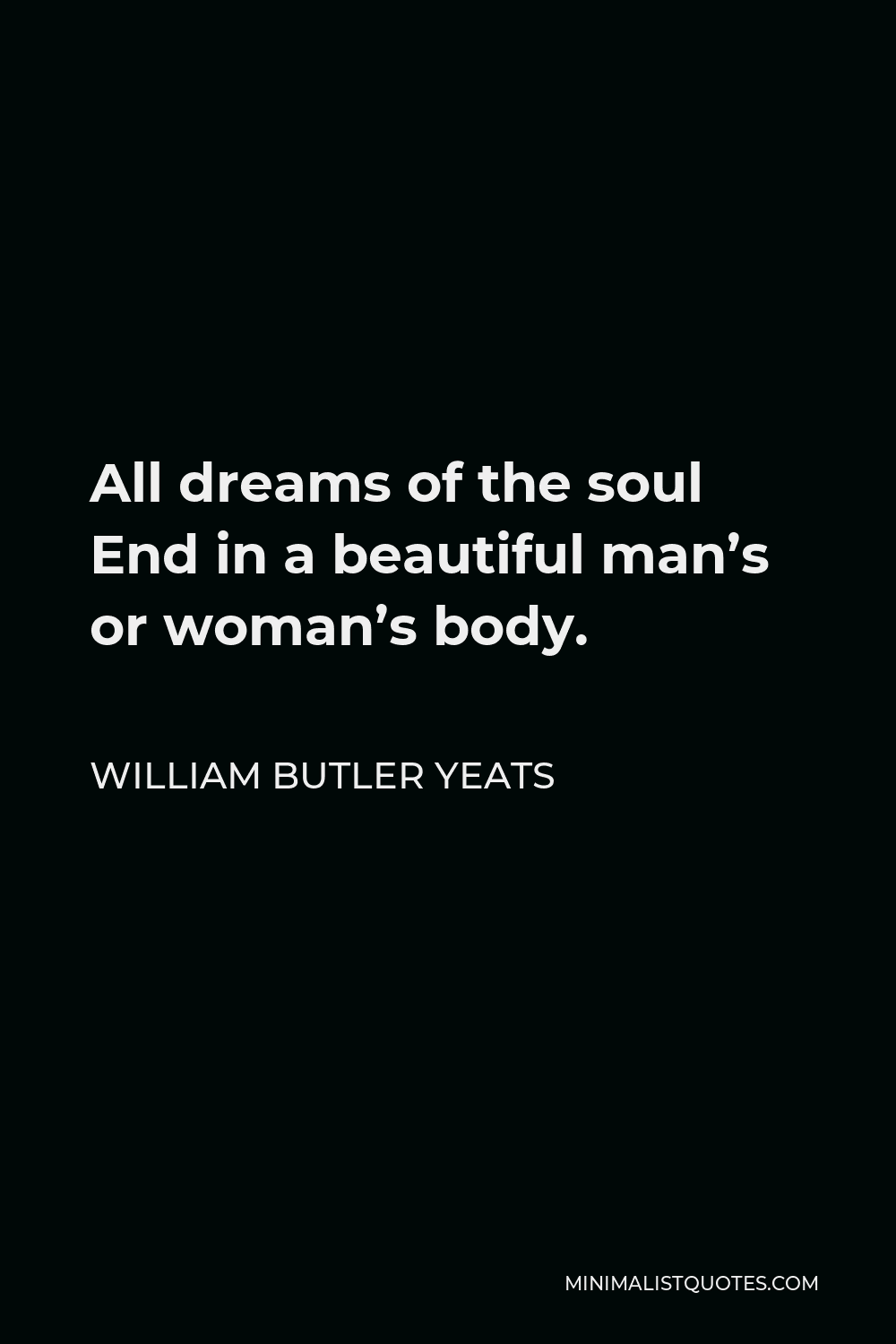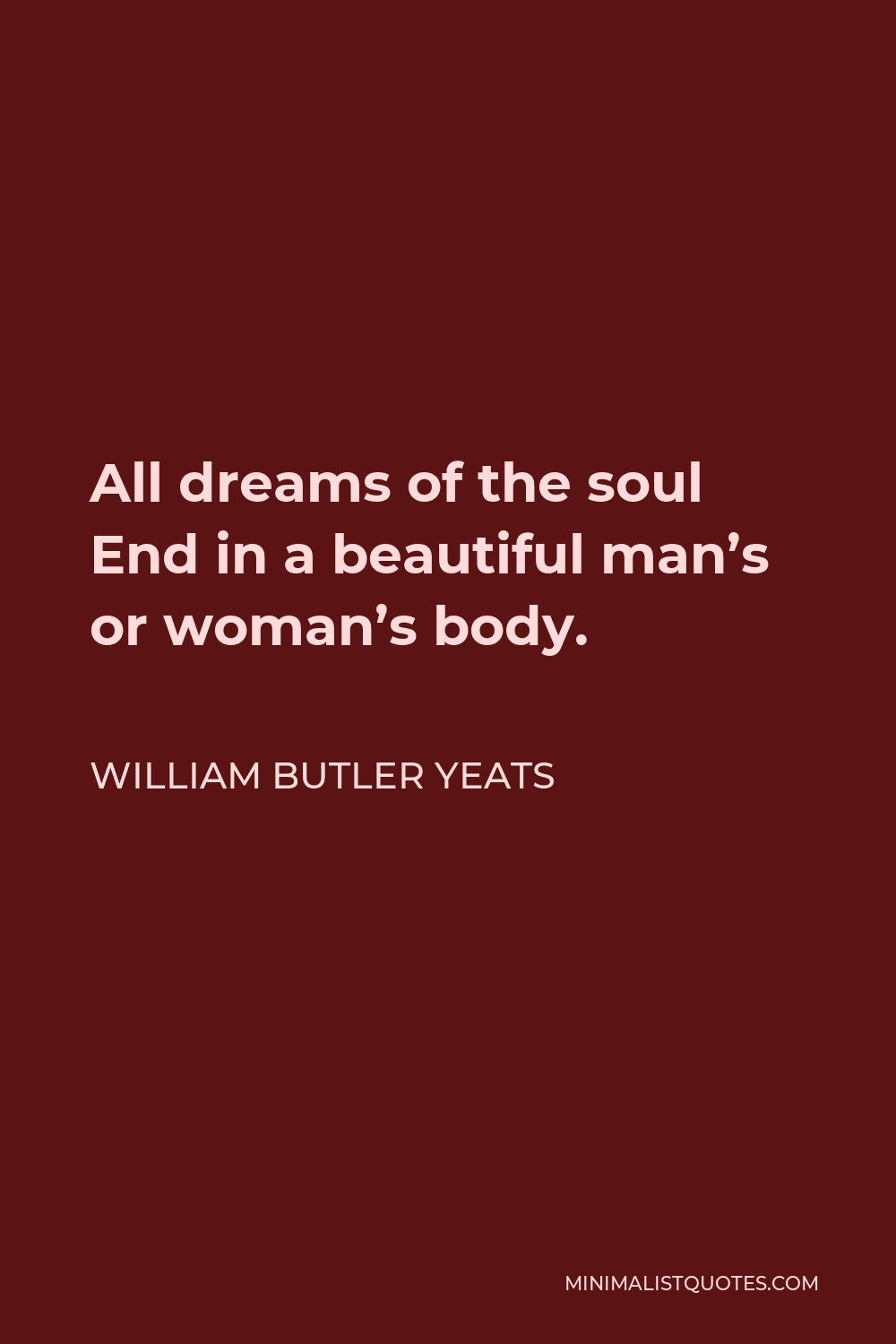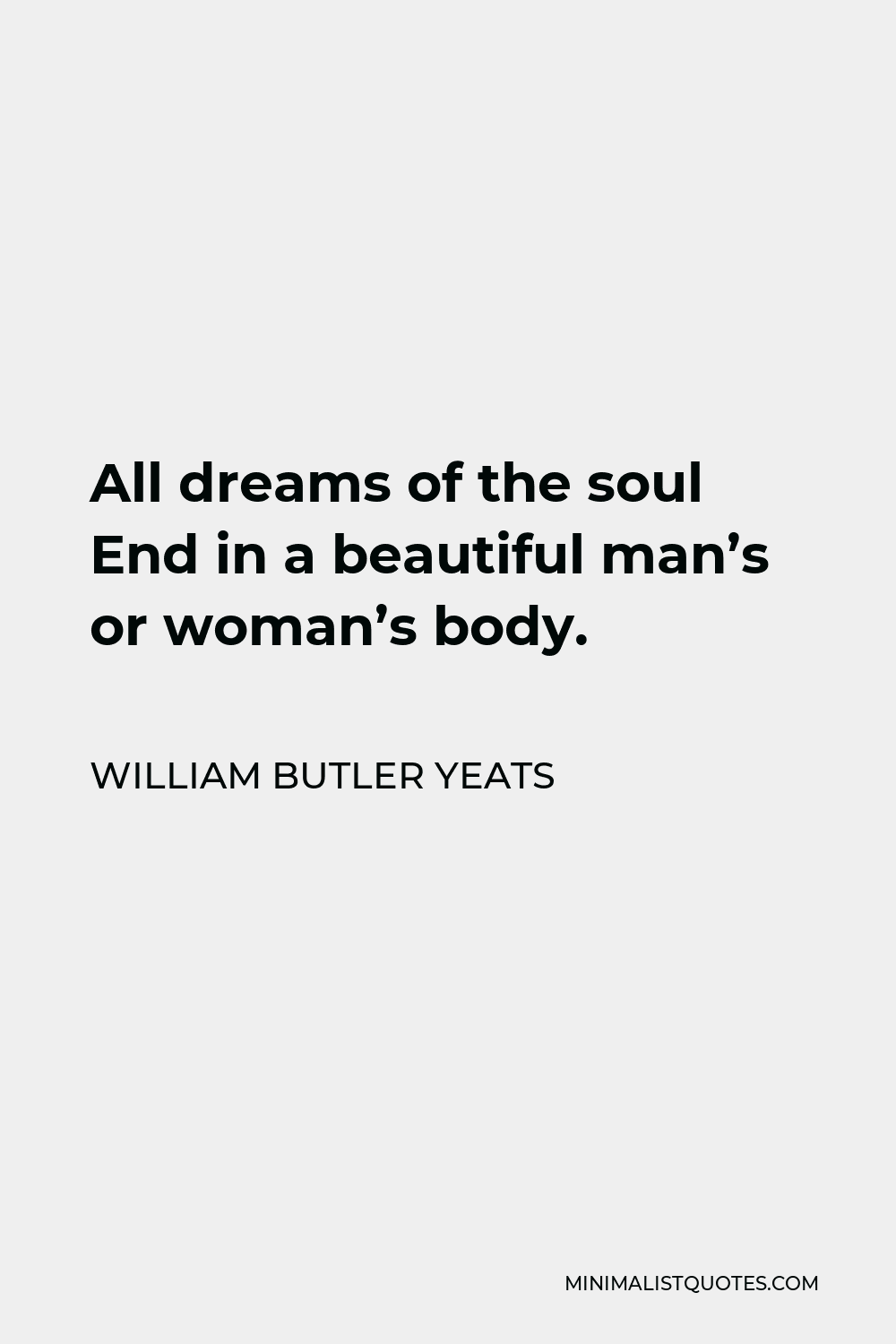Love is created and preserved by intellectual analysis, for we love only that which is unique, and it belongs to contemplation, not to action, for we would not change that which we love.
WILLIAM BUTLER YEATSAll dreams of the soul End in a beautiful man’s or woman’s body.
More William Butler Yeats Quotes
-





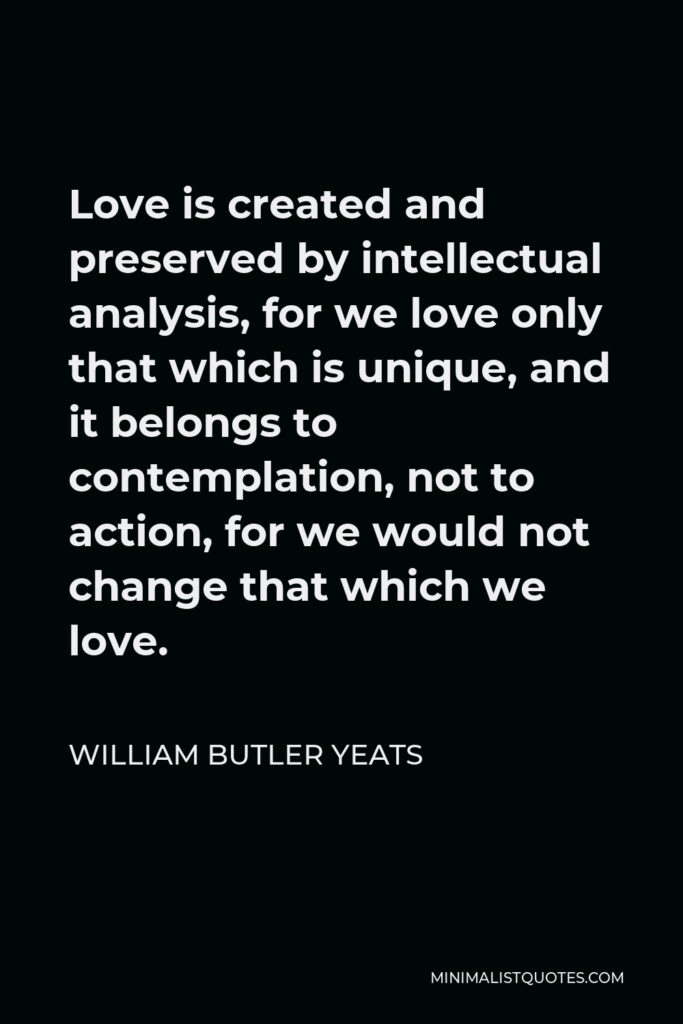

-





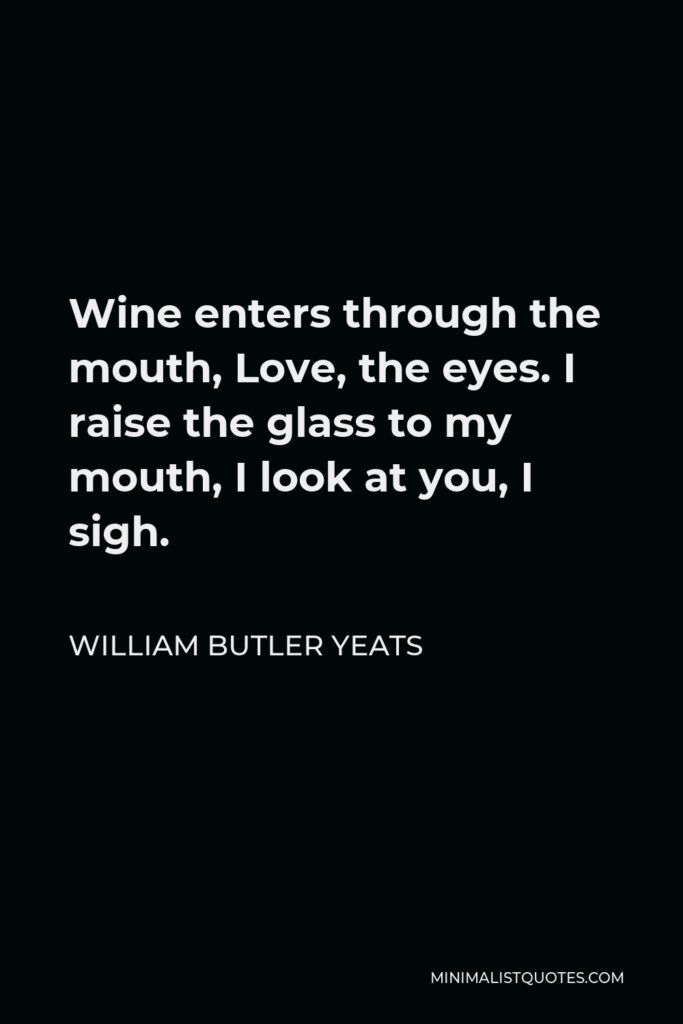

Wine enters through the mouth, Love, the eyes. I raise the glass to my mouth, I look at you, I sigh.
WILLIAM BUTLER YEATS -





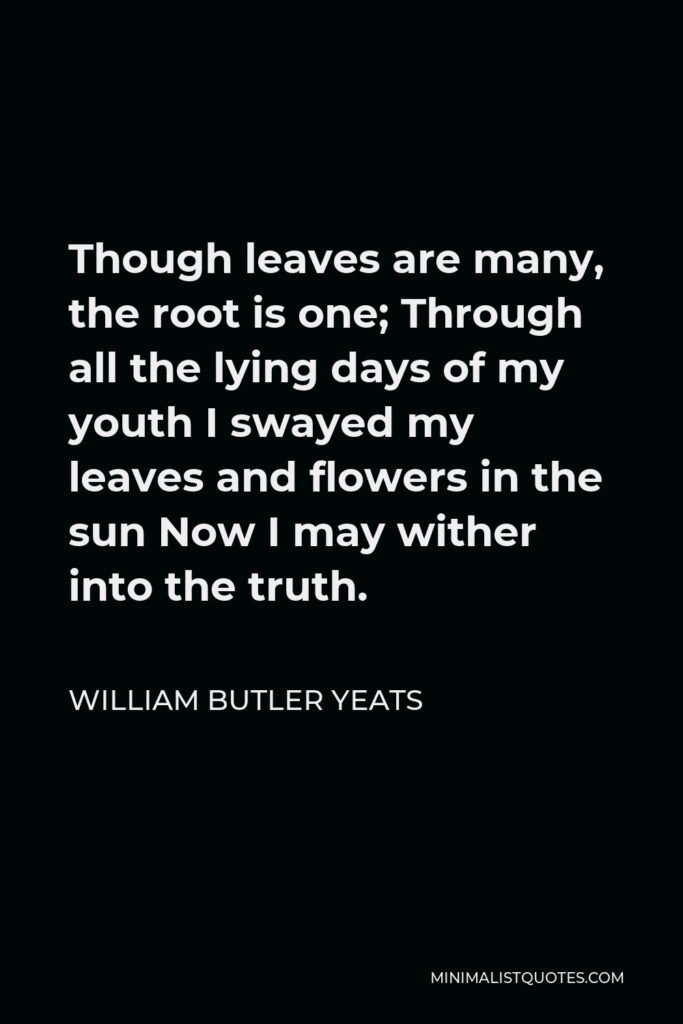

Though leaves are many, the root is one; Through all the lying days of my youth I swayed my leaves and flowers in the sun Now I may wither into the truth.
WILLIAM BUTLER YEATS -





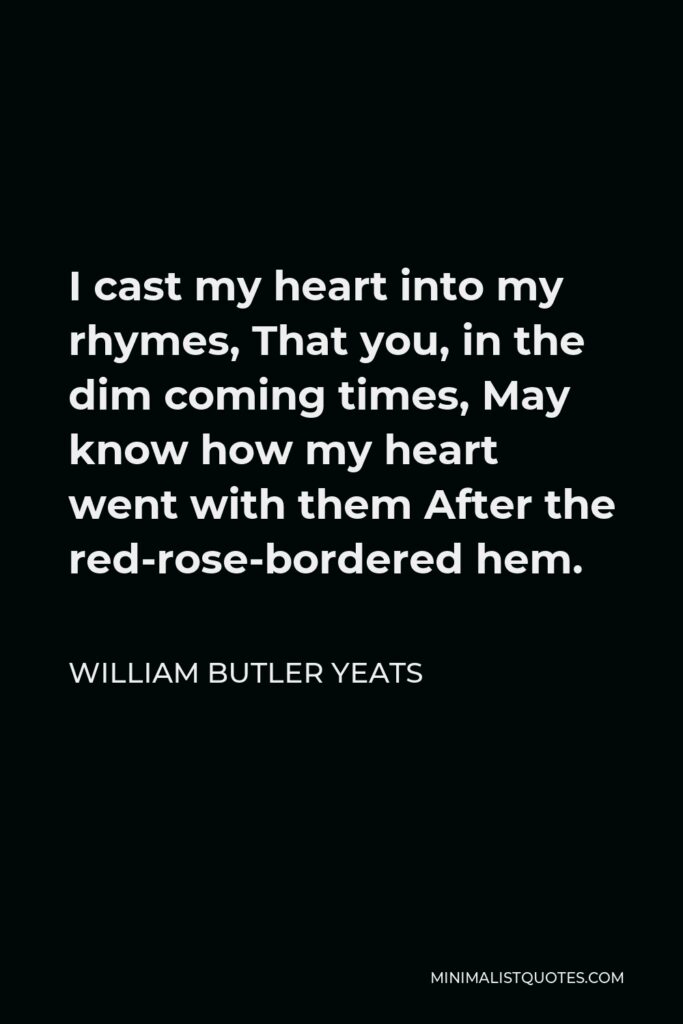

I cast my heart into my rhymes, That you, in the dim coming times, May know how my heart went with them After the red-rose-bordered hem.
WILLIAM BUTLER YEATS -





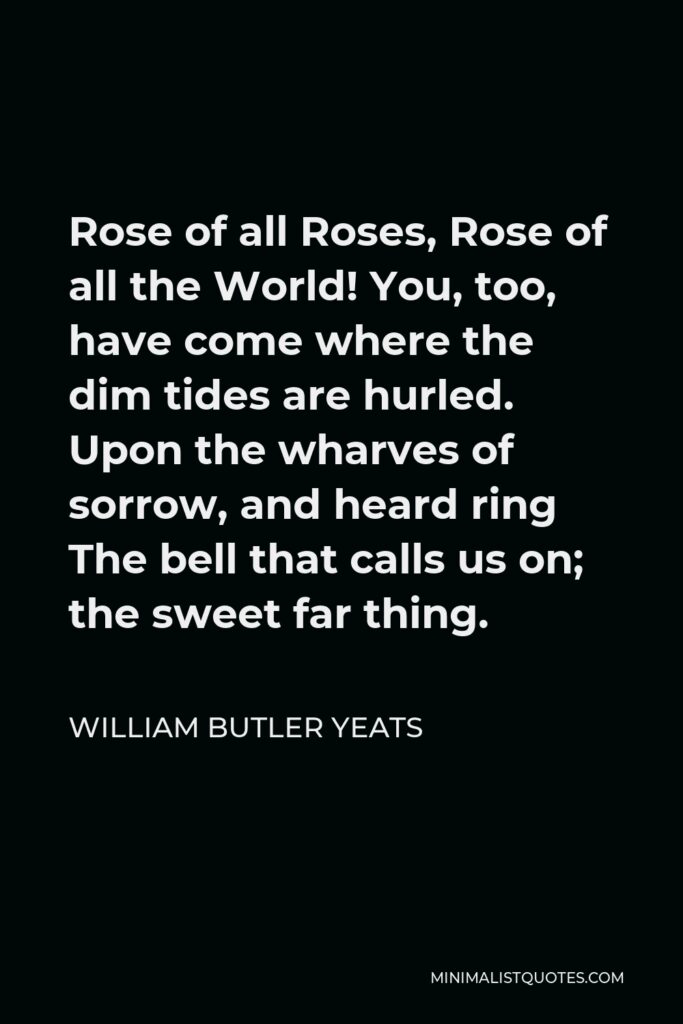

Rose of all Roses, Rose of all the World! You, too, have come where the dim tides are hurled. Upon the wharves of sorrow, and heard ring The bell that calls us on; the sweet far thing.
WILLIAM BUTLER YEATS -





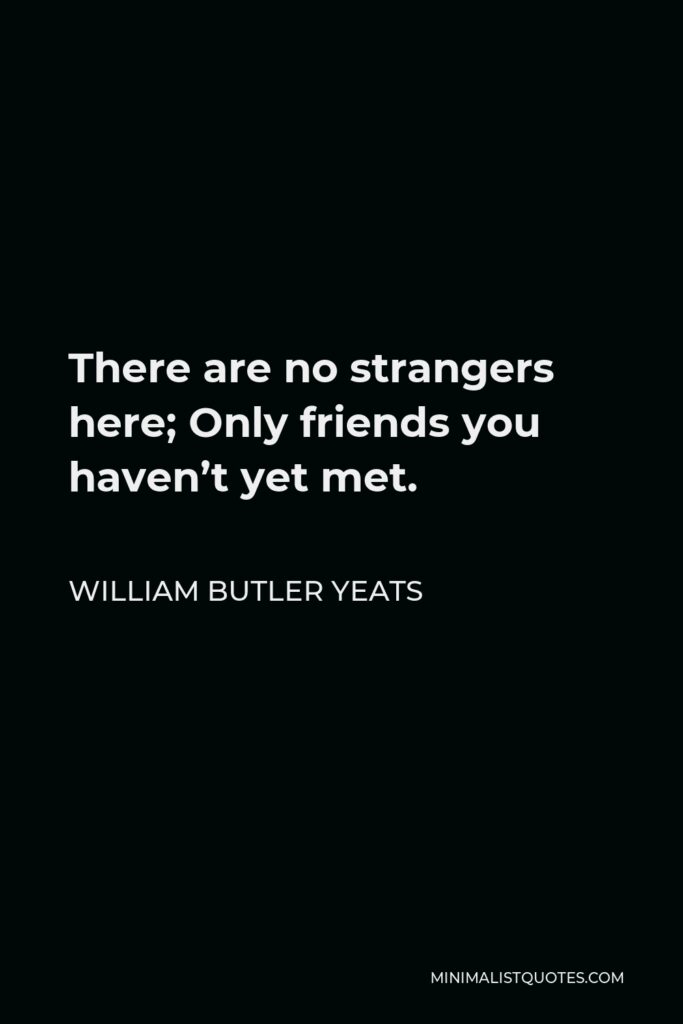

There are no strangers here; Only friends you haven’t yet met.
WILLIAM BUTLER YEATS -







I believe that our memories are part of one great memory, the memory of Nature herself.
WILLIAM BUTLER YEATS -





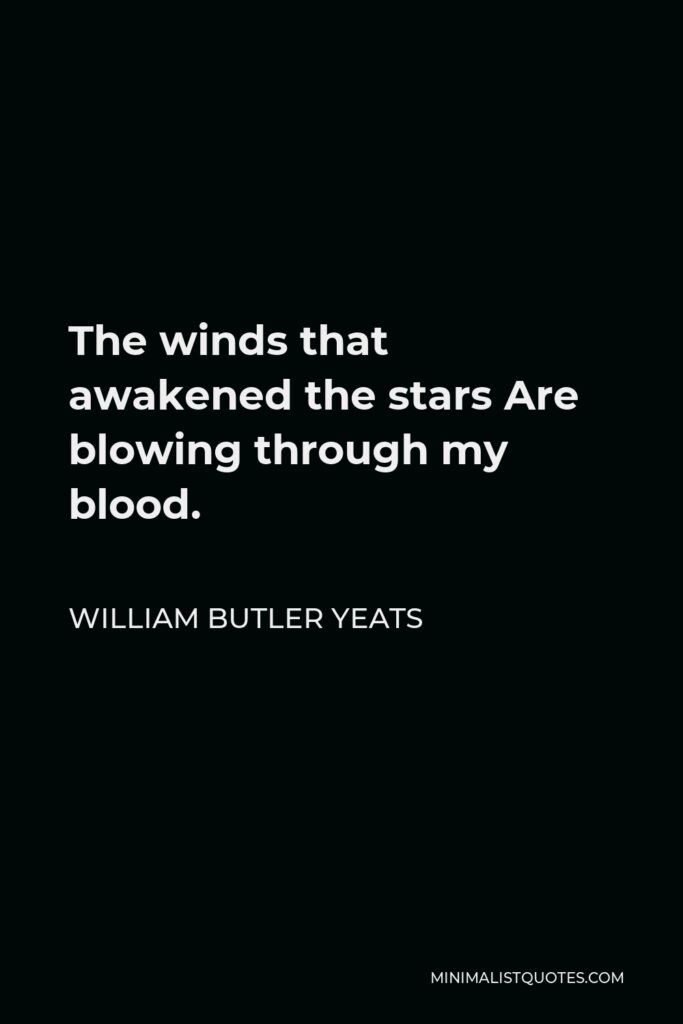

The winds that awakened the stars Are blowing through my blood.
WILLIAM BUTLER YEATS -





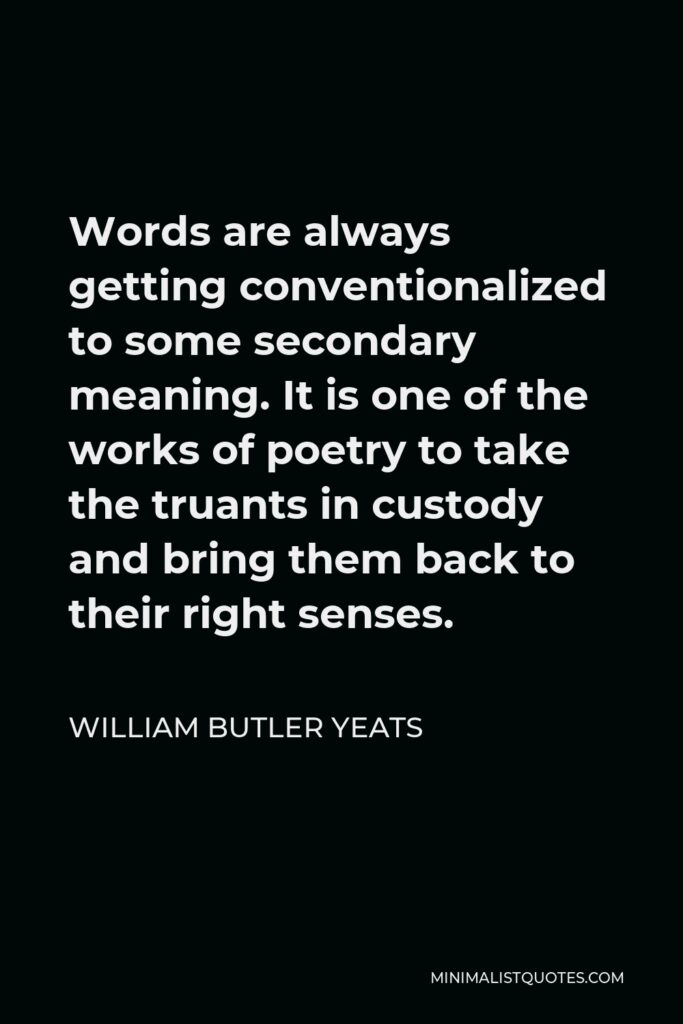

Words are always getting conventionalized to some secondary meaning. It is one of the works of poetry to take the truants in custody and bring them back to their right senses.
WILLIAM BUTLER YEATS -







Choose your companions from the best; Who draws a bucket with the rest soon topples down the hill.
WILLIAM BUTLER YEATS -





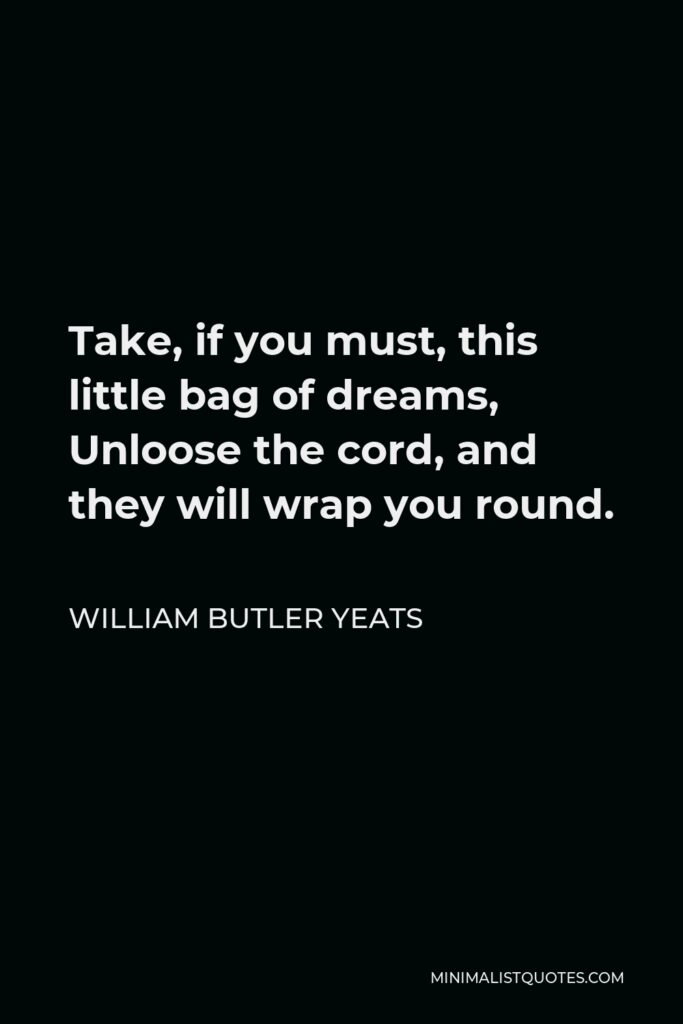

Take, if you must, this little bag of dreams, Unloose the cord, and they will wrap you round.
WILLIAM BUTLER YEATS -







Everything that’s lovely is But a brief, dreamy kind of delight.
WILLIAM BUTLER YEATS -





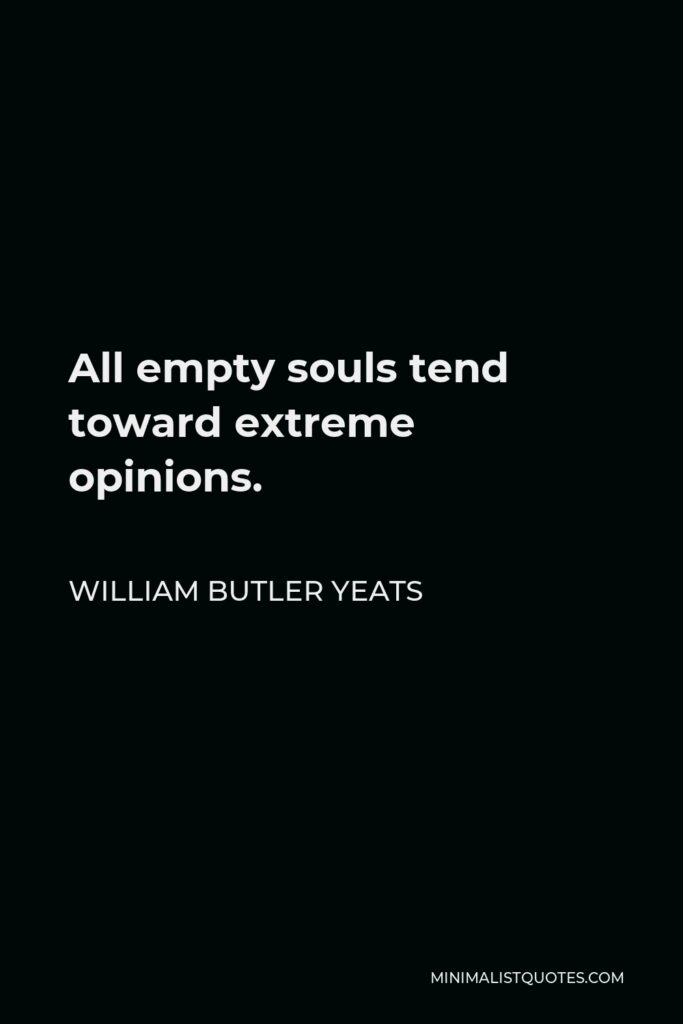

All empty souls tend toward extreme opinions.
WILLIAM BUTLER YEATS -





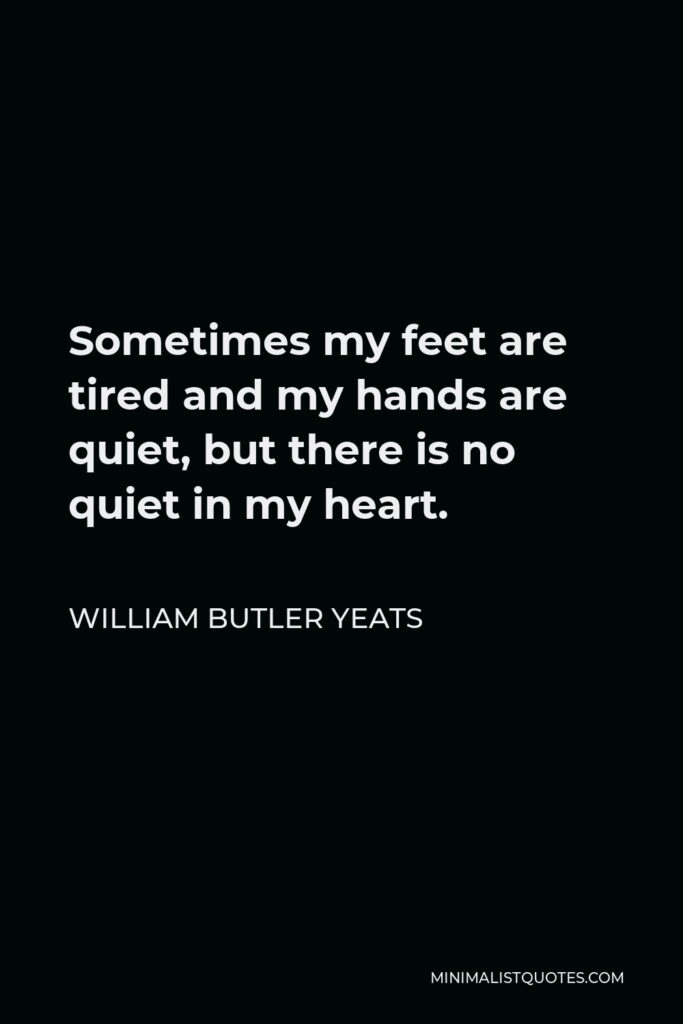

Sometimes my feet are tired and my hands are quiet, but there is no quiet in my heart.
WILLIAM BUTLER YEATS -





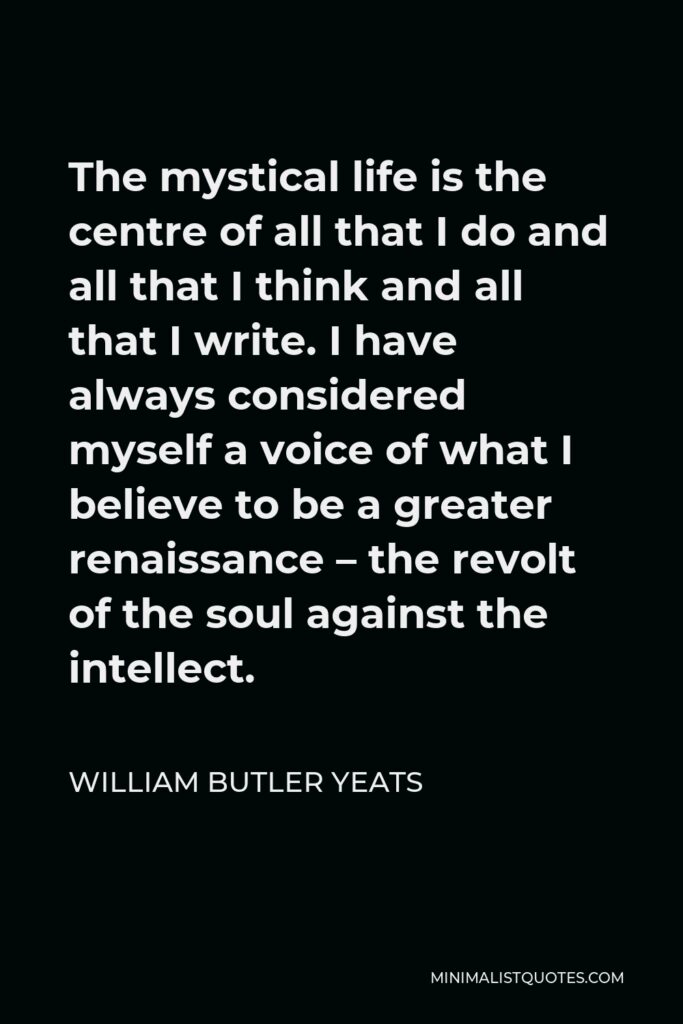

The mystical life is the centre of all that I do and all that I think and all that I write. I have always considered myself a voice of what I believe to be a greater renaissance – the revolt of the soul against the intellect.
WILLIAM BUTLER YEATS -





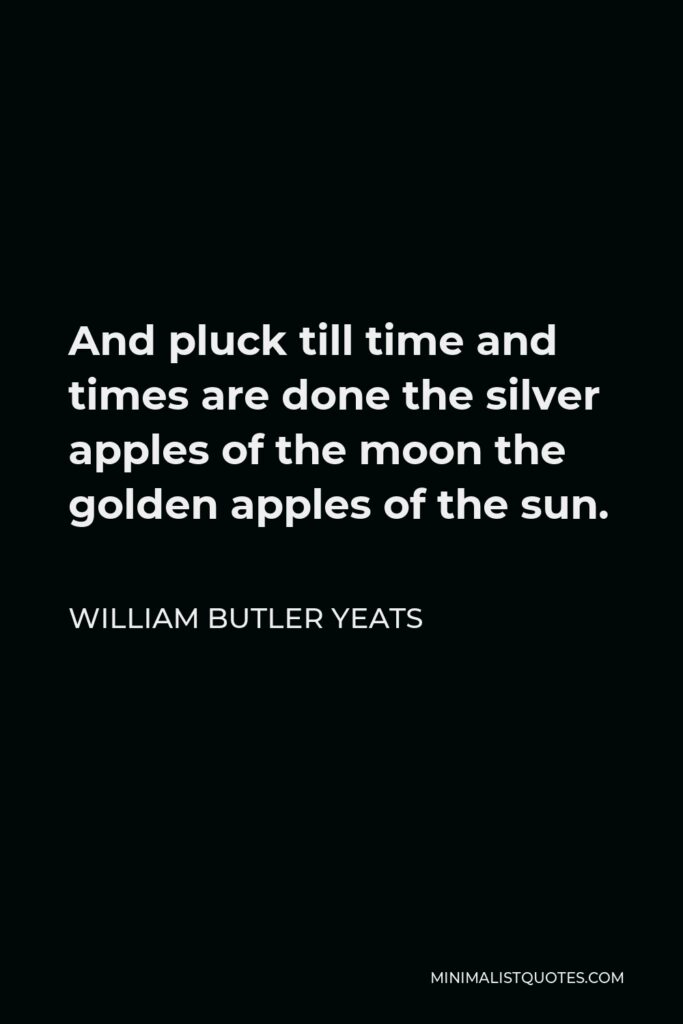

And pluck till time and times are done the silver apples of the moon the golden apples of the sun.
WILLIAM BUTLER YEATS
